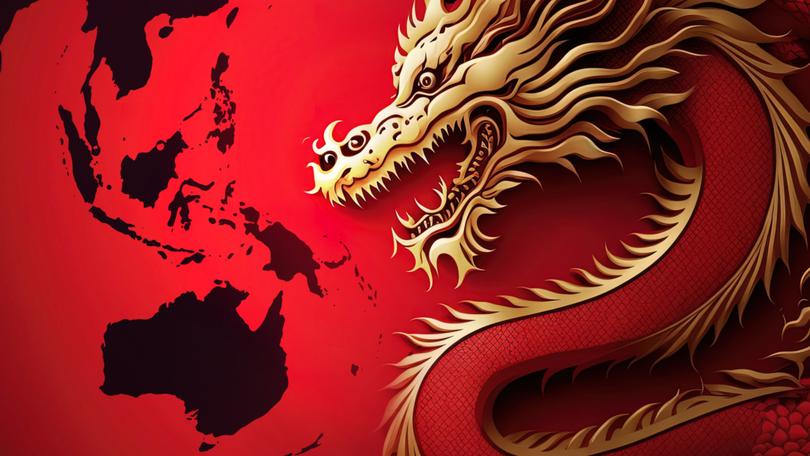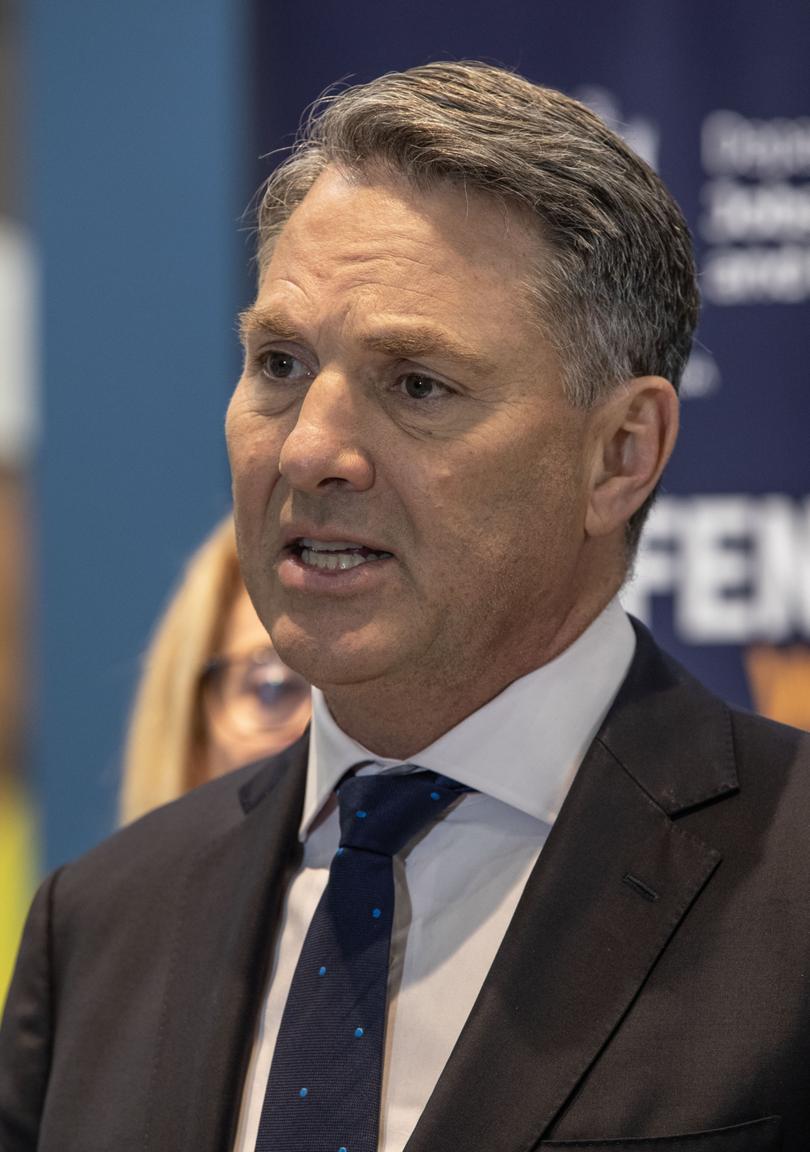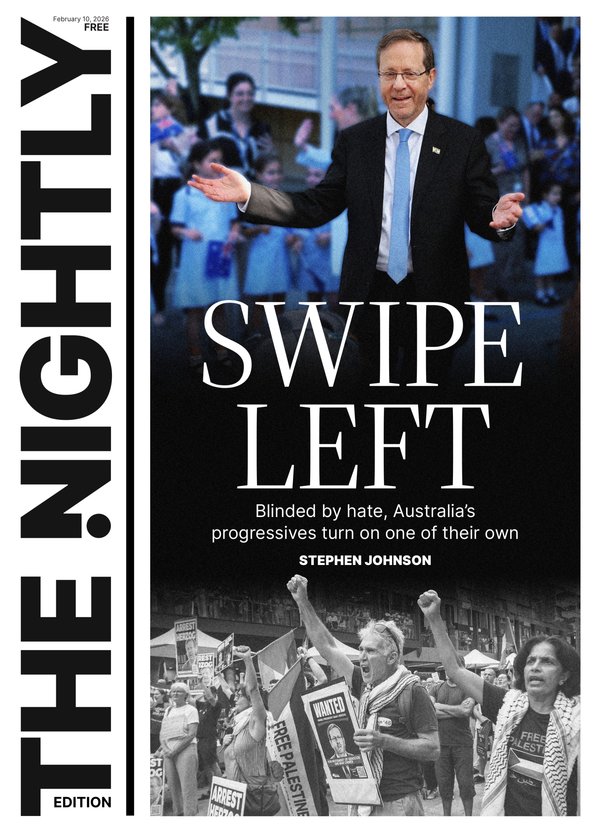Why Indonesia increasing defence cooperation with Beijing is a problem for Australia
Jakarta looks to increase defence cooperation with Beijing and that’s a bigger problem for Australia than the perceived threat of a Russian military base.

Russia’s reported attempts to secure access to an Indonesian military base have brought national security to the forefront of the Federal election campaign, but defence experts caution that Canberra should pay more heed to Beijing’s ties with Jakarta.
China and Indonesia on Monday held their first joint meeting between foreign and defence ministers under a new format intended to boost military cooperation.
The sit-down came as Beijing stepped up its efforts to charm Southeast Asian nations facing the destabilising impact of new US trade tariffs, with Chinese President Xi Jinping personally visiting the worst affected countries of Cambodia, Malaysia and Vietnam.
Sign up to The Nightly's newsletters.
Get the first look at the digital newspaper, curated daily stories and breaking headlines delivered to your inbox.
By continuing you agree to our Terms and Privacy Policy.Monday’s talks in Jakarta focussed on deepening bilateral collaboration in defence sectors and setting up “regular, high-level” military exchange and joint training.
Ahead of the exchange, the Chinese foreign ministry said it demonstrated the “strategic importance” of China-Indonesia cooperation, which Indonesia’s Defence Minister Sjafrie Sjamsoeddin also gave a public nod to on Monday.
Chinese Foreign Minister Wang Yi pointed to the severe impact of “hegemonism” on the international landscape and said, “the more complex and volatile the external environment is, the more significant for China and Indonesia to pursue solidarity and cooperation”.
The two sides also announced plans to hold joint military exercises in 2025 — an activity Australia’s other near neighbour Timor-Leste said separately last week that it would also be open to.

Australian Strategic Policy Institute senior analyst Euan Graham told The Nightly the meeting of Chinese and Indonesian foreign and defence ministers “deserves more attention than the Russian Air Base issue” and should give Canberra pause for thought.
Last week’s campaign agenda was hijacked by a report in respected defence journal Janes that Russia had requested Jakarta to station warplanes at the Manuhua Air Force Base, some 1,300km north of Darwin.
The Indonesian government confirmed to Canberra that no such request had been granted but, six days later, the Coalition is still demanding answers about whether a formal approach was made by Moscow and how much Labor knew and when.
Dr Graham said the Russia issue should not be dismissed but added that China was a much more serious player in the region.
“I think Russia likes to demonstrate that it’s a global actor, but it doesn’t really have the means to sustain that,” he said.
“China is a very different ball game, and from Australia’s point of view, any inroads that China makes into Southeast Asia or the Pacific are inherently threatening.”
While the details of Russia’s request to Indonesia remain unclear, Jakarta, although historically non-aligned, has been openly strengthening ties with Moscow as it considers how to protect its own interests in a shifting strategic environment.
In a similar fashion, it was no surprise that President Prabowo Subianto’s administration was seeking to increase defence cooperation with China, said Dr Graham.
“They’ve said they have an intention to do that. So, this is not cloak and dagger,” he said.
However, it should be a wake-up call for Australia’s “optimism bias” about its own influence in the region and relationship with Indonesia, he said.
Monday’s “two plus two” ministerial meeting was a “blunt check on the idea that Indonesia is a like-minded partner that wants to counterbalance China,” Dr Graham argued.
“That’s not the case. I think Indonesia is increasingly asserting itself as neutral between the United States and China, and just wanting to increase the defence relationship with China, which it considers underdeveloped.”
News of Indonesia’s enhanced defence dialogue with China comes as the Coalition steps up its calls on the Government to offer a briefing on Russia’s regional ambitions and outreach to Jakarta.
Labor has refused to do so, based on the premise that Russia’s proposal, if made, is not going ahead.
Prime Minister Anthony Albanese on Monday said he would not engage with Russian propaganda that was not in Australia’s national interests, mocking the Coalition by saying he was “waiting for them to ask for a briefing on who faked the moon landing”.
The Opposition frontbench has continued to demand clarity, accusing the Government of dropping the ball on national security.
Shadow foreign minister David Coleman said that Indonesia’s latest round of talks with China “demonstrate why we can’t have a Government which is repeatedly caught out as flat-footed and weak on securing our region”.
“It’s another reason why the Government needs to be honest with the Australian people about such matters, and why they are wrong to refuse to provide a briefing to the Opposition on the Russia issue,” he told The Nightly.

With national security and foreign policy issues looming large over the election campaign, the Coalition is set to unveil its defence policy ahead of Anzac Day this weekend.
“We have already said that we’ll increase defence spending, we’ll spend more and we’ll spent it faster than what Labor is,” Coalition election spokesman Senator James Paterson told the ABC on Thursday.
Some of the money would be spent on restoring the fourth squadron of Joint Strike Fighters which Labor Party cancelled, he said, referring to an ambition flagged earlier this year.
“We think Australia, in a dangerous world, needs that capability, that regionally superior air capability,” adding that the Coalition’s defence goals would be fleshed out further in the coming days.
Senator Paterson refused to be drawn on specific figures, but a report in the Australian Financial Review at the weekend indicated the Opposition would opt for a two-stage approach to hiking defence spending.
This would mean setting a target to reach at least 2.5 per cent of gross domestic product in the early 2030s, compared to the 2.05 per cent Labor expects to spend in 2025-26 and 2.23 per cent by 2028-29. It would hit 2.3 per cent by 2033-34.
Labor stuck by its guns on denying the Coalition a Russia briefing on Tuesday, with Defence Minister Richard Marles repeating that line that, “there is no government decision or action which has taken place here. So, in that sense, there is there is nothing to brief”.
Asked at a Perth press conference if he had any concerns about the bilateral Indonesia-China defence talks and whether US tariffs would force Asian neighbours into China’s arms, he downplayed the prospect.
“We understand that Indonesia is going to have the relationships that it does. I’ve described the relationship that it’s had with Russia. It has a pre-existing relationship with China as well. We understand all of that,” he said.
“What matters is that we are building our bilateral relationship with Indonesia. And the Australian-Indonesian bilateral relationship is in as good a shape today as it has ever been.”

